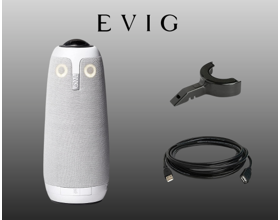AI-Generated Voices: Are They Better Than Real Narrators?

The emergence of AI-generated voices has sparked a debate about their efficacy compared to human narrators. While these digital voices offer clarity and consistency, they often fall short in emotional resonance and storytelling depth. This raises questions about the true value of human connection in audio experiences. As advancements in technology continue, the implications for future narration are profound and warrant closer examination. What will this mean for the art of storytelling?
The Rise of AI-Generated Voices
As advancements in artificial intelligence continue to reshape various industries, the emergence of AI-generated voices has become a significant development in audio production.
AI technology, particularly voice synthesis, has dramatically improved audio quality, catering to diverse user preferences. This evolution raises questions about authenticity and artistry, challenging traditional notions of narration while offering new avenues for creativity and accessibility in storytelling.
See also: How to Add and Edit Music Tracks in a Video Editor
Advantages of AI Narration
While traditional narration offers a unique human touch, the advantages of AI narration are becoming increasingly apparent in various applications.
AI-generated voices provide significant cost efficiency, reducing production expenses associated with hiring professional narrators.
Furthermore, they enhance accessibility benefits, allowing diverse audiences to engage with content regardless of language or hearing capabilities.
This fosters inclusivity, empowering individuals to experience literature and information freely.
The Value of Human Narrators
The value of human narrators lies not only in their ability to convey emotion but also in their nuanced understanding of storytelling.
Their performances create an emotional connection that resonates deeply with listeners, enhancing the overall experience.
Unlike AI, human narrators interpret subtleties, infusing life into characters and events, thereby enriching the narrative and allowing audiences to engage more fully with the story.
The Future of Audio Narration
How might advancements in technology reshape the landscape of audio narration? As AI-generated voices evolve, they promise to enhance immersive storytelling while also posing challenges to emotional connection.
Future innovations may create a hybrid approach, blending the precision of AI with the warmth of human narrators, ultimately providing listeners the freedom to choose their preferred auditory experience in an increasingly diverse narrative landscape.
Conclusion
As the landscape of audio narration evolves, the question remains: can a machine truly replace the soul of storytelling? While AI-generated voices offer efficiency and consistency, they often fall short of capturing the emotional resonance that human narrators provide. The future may lie in a harmonious blend of both, where technology enhances storytelling without overshadowing the rich, empathetic connections forged by the human voice. Ultimately, the art of narration may thrive on this delicate balance of innovation and humanity.





